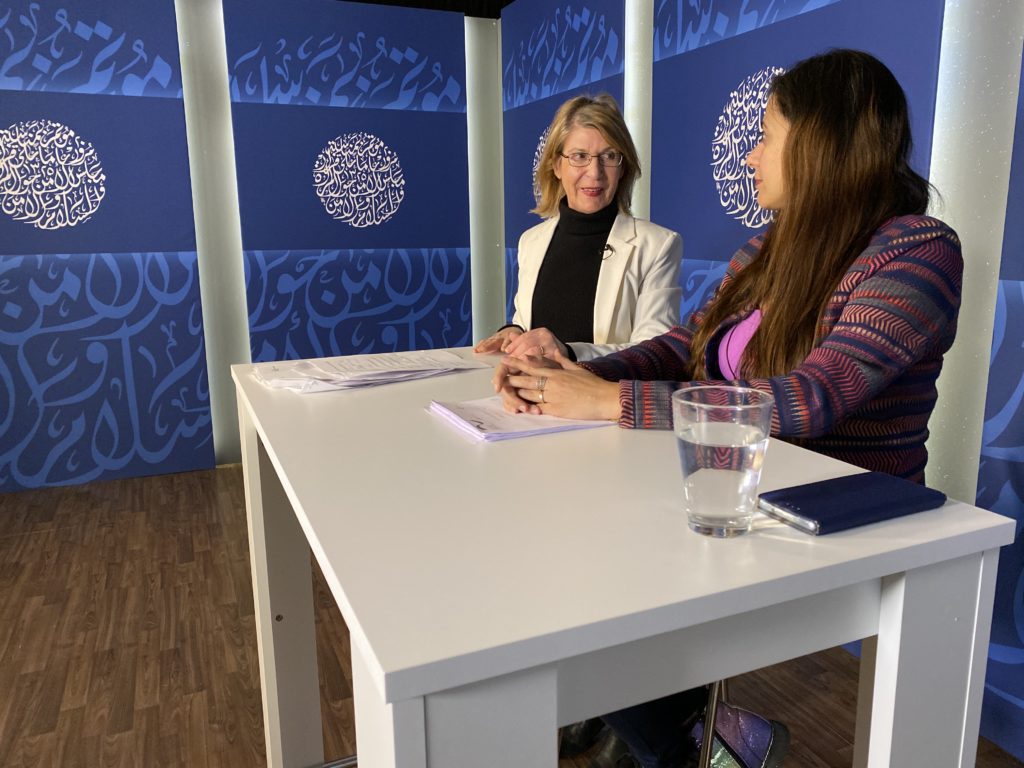Looking back at the conference on the 20th anniversary of UNSCR 1325
Twenty years after the United Nations Security Council Resolution (UNSCR) 1325 on Women Peace and Security was adopted, women in Iraq and the MENA region continue to struggle with the consequences of violence, war and conflict. Peace and reconciliation remain unfulfilled dreams for most of them. This is despite the fact that numerous studies have proven that peace initiatives and conflict solutions that are actively shaped by women tend to be more successful.
On the occasion of the 20th anniversary of UNSCR 1325, elbarlament facilitated a high level hybrid conference on the 11th and 12th of December 2020. The conference took place within the framework of the project “Women Talking Peace” which is funded by the Deutsche Gesellschaft für Internationale Zusammenarbeit (GIZ) on behalf of the Government of the Federal Republic of Germany and implemented by elbarlament e.V. in Iraq. The conference aimed to bring together government officials, experts, women’s organisations, researchers, activists, religious and tribal leaders and civil society representatives of Iraq to reflect on the Women, Peace and Security agenda. The conference aimed at showcasing women’s positive role in overcoming cultural and social divisions.
At the start of the conference, Dr. Ali Youssef Al-Shukri, Senior Advisor to His Excellency the President of the Republic of Iraq; Dr. Ole Diehl, The Ambassador of the Federal Republic of Germany in Iraq; Ms. Susan Leichtweiss, Programme Manager at the German Corporation for International Cooperation (GIZ) in Iraq and Dr. Birgit Laubach, Chairwomen of the Executive Board, elbarlament e.V. shared their opening words and warmly welcomed the participants and the audience.
The first conference day hosted two panel discussions. In the first discussion on the “Challenges, Obstacles and Opportunities for Implementing UNSCR 1325 in Iraq”, the three panelists from Iraqi civil society and state institutions debated about achievements in terms of UNSCR 1325 in Iraq over the past 20 years and which opportunities exist for the Iraqi society. In the second panel, “Peace and Participation – Views from across MENA”, five women engaged in civil society and state level projects about peacebuilding and women empowerment exchanged their experiences regarding the women, peace and security agenda in their respective countries. Furthermore, the five panelists discussed opportunities for cooperation and exchange of information with regard to UNSCR 1325 on a regional level.
During the second day, three discussion rounds took place. In the first panel “The Role of Women in Peacebuilding in Iraq”, two Iraqi experts on women, peace and security from the parliament and civil society discussed the main obstacles to the inclusion of women in peacebuilding processes in Iraq including the legal framework. The panel focused on how peacebuilding efforts can be more inclusive for women from different sects, minorities, geographical areas and women stemming from different socio-economic backgrounds as well as IDPs.
In the second panel discussion of day two “Promotion of Women’s Rights by Religious Leaders”, five panelists involved in religious affairs and/or peacebuilding and female empowerment debated on how religious leaders can contribute to overcome socio-cultural obstacles that women face and how religious institutions can psychologically better support women (ie. IDPs, victims of violence). The panel discussed whether clerics have influence on the drafting of certain laws as well as questions on their role in steering communication with conservative groups towards the importance of women’s rights.
Finally, in the last panel, “Young Women Making Peace”, five young politically active women from different cities in Iraq talked about their visions and hopes for a peaceful future in Iraq – What would need to happen for things to improve? The panelists shared their experience during public protests in Iraq since 2019. They debated about a new culture of dealing with each other and opportunities to mainstream this new culture and anchor it within society.
A video documenting the conference can be viewed here.

